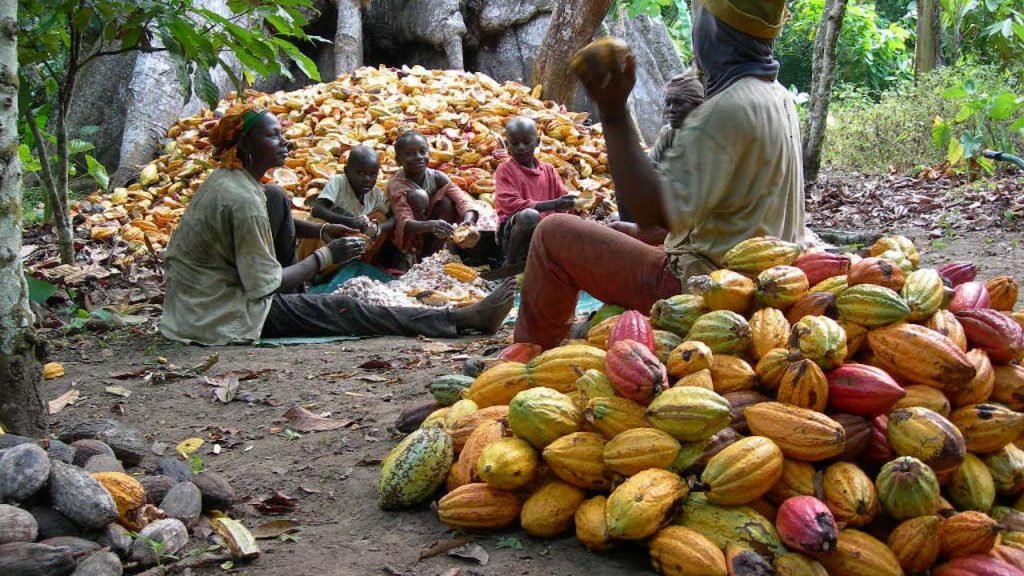Despite record-breaking cocoa prices, millions of farmers in West Africa remain trapped in poverty, according to the Cocoa Barometer 2025 report released on Wednesday.
The global study, led by a consortium of civil society groups under the VOICE Network, paints a grim picture of inequality in the chocolate supply chain. It reveals that while Côte d’Ivoire and Ghana produce over 60% of the world’s cocoa and Nigeria is set to hit 350,000 tonnes in the 2024/25 season, smallholder farmers continue to earn next to nothing.
The report blames forward-selling mechanisms that delay price increases, combined with falling yields from ageing trees, crop diseases, and erratic rainfall driven by climate change.
“Farmer poverty is at the root of nearly every problem in the cocoa industry from child labour and deforestation to gender inequality,” the report states.
The document also warns that high prices could spark a dangerous expansion into new regions, risking an oversupply and a repeat of the 2016 price crash.
Meanwhile, an estimated 1.5 million children still work in hazardous conditions on cocoa farms in Ghana and Côte d’Ivoire, and women who perform most of the farm labour remain largely excluded from profit-sharing and decision-making.
The report highlights that weak governance, poor supply management, and a lack of transparency in cocoa sales have left farmers vulnerable to volatile markets. Political resistance in Europe to new human rights and environmental regulations could further stall long-overdue reforms.
Despite these setbacks, the Cocoa Barometer 2025 insists that change is still possible — if the industry unites around fair pay, forest protection, and genuine inclusion of farmers in policy and pricing decisions.
“The sector’s fragility stems from broken systems but systemic change is achievable through collaboration among farmers, governments, companies, and civil society,” the report concludes.











